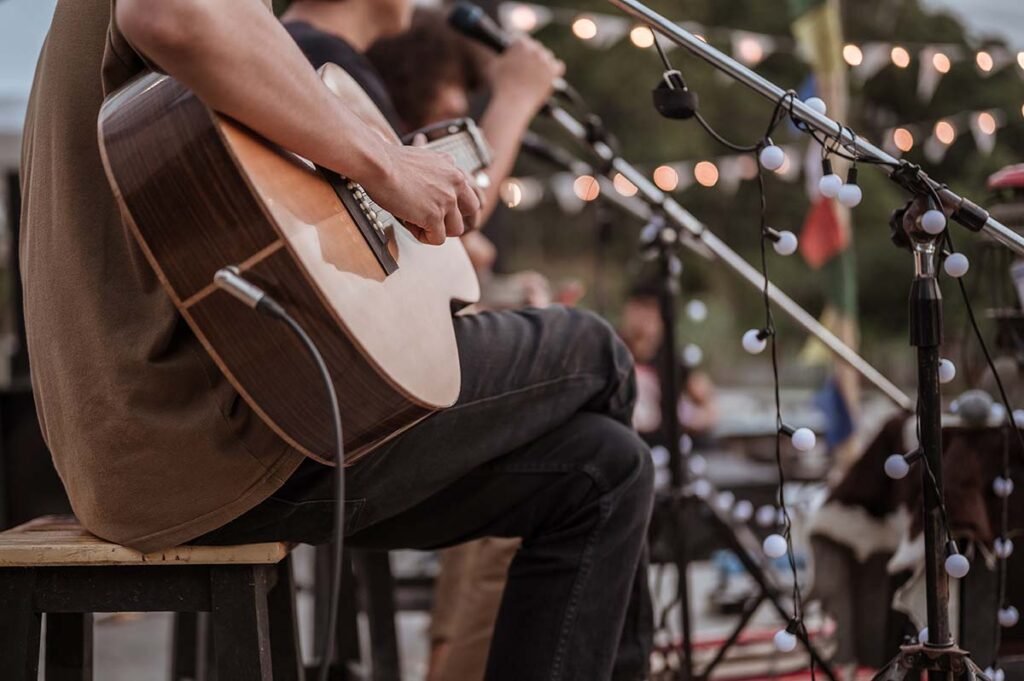No 3º Congresso Cerealista Brasileiro, contribuímos para ampliar o debate sobre as alternativas disponíveis aos credores diante do avanço da recuperação judicial no agronegócio. A apresentação conduzida por Thomas Dulac Müller, sócio-diretor da CPDMA, destacou os principais pontos de atenção para cerealistas e demais agentes da cadeia, com foco na organização coletiva, na atuação estratégica em […]
CPDMA BLOG
Musical parodies do not need to mention the author of the original work, decides STJ

a few days ago the STJ published the result of a judgment promoted by the Court, which discussed the need to mention the author of the original work when making and disseminating a parody, in the light of copyright.
The Superior Court of Justice granted the Special Appeal filed by Rádio e Televisão Bandeirantes (BAND), overturning the judgment of the São Paulo Court of Justice that had sentenced the broadcaster to pay R$ 10 thousand, as moral damages, to the author of music that had a parody of his work aired on the broadcaster's program, without credit being attributed to him as the author of the original work.
The author of the work maintained before the Supreme Court the claim for damages in the allegation of plagiarism of his music, which was not accepted. The understanding of the STJ, unanimously, was in the sense that the broadcasting of parody by the broadcaster does not infringe the copyright of the original creator, since the parody must be considered as an unpublished artistic work, a new intellectual creation that results from the transformation of a work previous. Therefore, the copyright on the parody would belong to its own creator, with no mention of the author of the inspiring work, not even alleging plagiarism.
Parody is a kind of reformulation of the original work, using comic terms or puns. The “new” music is made in a funny or educational tone and, as stated in art. 47 of the Copyright Law (Law No. 9.610/98), are free, as long as it is not a mere reproduction of the original work and does not imply discredit, and there is no need for prior authorization from the author. Typically, parodies use a familiar tune assigned to a new lyric.
The parody cannot, however, be confused with the music version. The broadcasting of a music version, without prior authorization, finds an obstacle in art. 46, item I, item “a”, of the Copyright Law. In the version, few changes are made to the music, taking advantage of a good part of the original work and, therefore, it is necessary to obtain prior and express authorization from the author of the musical work.
Recent posts
The Tax Reform, provided for in the Federal Constitution (art. 156-A), in Complementary Bill No. 108/2024, and in Complementary Law No. 214/2025, had as its main goal to transform the consumption taxation system in Brazil. Five complex taxes were eliminated — PIS, Cofins, IPI, ICMS, and ISS — which will be replaced by […]
STJ upholds acquisition for any price in the 3rd round of the bankruptcy auction and rejects claims of an unfairly low price
A Terceira Turma do Superior Tribunal de Justiça (STJ) proferiu uma decisão de grande impacto no Direito Empresarial e Processual, validando a arrematação de um imóvel de massa falida por apenas 2% de sua avaliação. Esta decisão é fundamental e reforça a prioridade da Lei de Falências (Lei nº 11.101/2005, atualizada pela Lei nº 14.112/2020) […]
Em recente julgamento (REsp 2.180.611-DF), a Terceira Turma do STJ estabeleceu um entendimento crucial que visa proteger o patrimônio do coproprietário ou cônjuge, em caso de penhora e arrematação de bens indivisíveis, que não tem responsabilidade pela dívida (o alheio à execução). O que mudou e o que você precisa saber? A lei (Código de Processo Civil - […]
O Superior Tribunal de Justiça (STJ) firmou um importante entendimento no Tema Repetitivo 1368 sobre a taxa de juros de mora aplicável a dívidas de natureza civil no Brasil, antes da vigência da Lei n.º 14.905/2024. --- A tese firmada: o STJ estabeleceu que o artigo 406 do Código Civil de 2002 (em sua redação anterior à Lei […]
Rural sale-and-leaseback: liquidity for companies in crisis and protected returns for investors
No agronegócio brasileiro, a busca por capital rápido em meio à escalada dos juros fez crescer uma estrutura já conhecida no mercado imobiliário urbano: o sale-and-leaseback. A lógica é direta: o produtor vende a área rural a um investidor, recebe o dinheiro à vista e, no mesmo ato, assina um contrato de arrendamento a longo prazo […]


